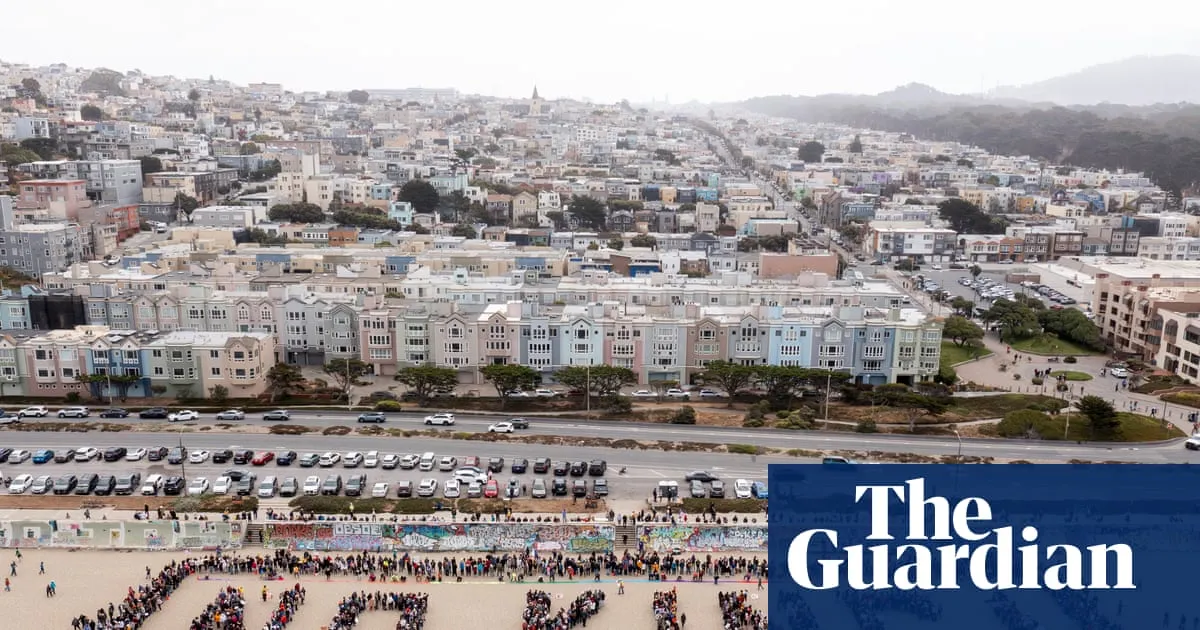
On Saturday, Americans across all 50 states will unite in a series of protests against the Trump administration, highlighting concerns over the country's perceived drift towards authoritarianism. The protests, branded as the No Kings movement, aim to deliver a powerful message: there should be no kings in the United States. Millions of participants are anticipated to join this significant event, which marks the second iteration of a coalition that previously mobilized in June, resulting in one of the largest protest days in U.S. history.
Scheduled at over 2,700 locations nationwide, the No Kings protests will span from small towns to major urban centers. The events come in response to Donald Trump’s controversial policies, which have included attempts to send federal troops into U.S. cities and the deployment of additional immigration agents. Critics allege that the administration is actively working to criminalize dissent, targeting left-leaning organizations that the president claims are linked to terrorism or political violence.
In reaction, many cities have pushed back against these federal interventions, filing lawsuits to prevent the deployment of the National Guard. Local residents have also taken to the streets to voice their opposition to the militarization of their communities, emphasizing the need for peaceful protest and civic engagement.
Trump’s allies have attempted to frame the No Kings protests as anti-American and dominated by antifa, a loosely organized anti-fascist group. Additionally, they have accused protesters of exacerbating the ongoing government shutdown. In a preemptive move, Texas Governor Greg Abbott announced plans to send the state's national guard to Austin, the capital, ahead of the planned protests.
Prominent politicians, including Democratic senators Chuck Schumer and Chris Murphy, as well as independent Senator Bernie Sanders, are expected to participate in the No Kings protests. This political support underscores the growing concern among lawmakers regarding the Trump administration's approach to governance.
The No Kings coalition has emphasized its dedication to nonviolent resistance. Tens of thousands of participants have undergone training in safety and de-escalation tactics to ensure peaceful demonstrations. Lisa Gilbert, co-president of Public Citizen and one of the protest organizers, stated, “What’s most important as a message for people to carry is that the president wants us to be scared, but we will not be bullied into fear and silence.” She added that maintaining a peaceful stance is crucial for expressing their values without yielding to intimidation.
With more than 200 organizations partnering for the protests on October 18, the No Kings movement has gained significant traction. Organizers have identified several key cities for the demonstrations, including Washington D.C., San Francisco, San Diego, Atlanta, New York City, Houston, Honolulu, Boston, Kansas City in Missouri, Bozeman in Montana, Chicago, and New Orleans.
The central theme of the protests is a clear repudiation of Trump’s increasing authoritarianism. Organizers have articulated several critical points, such as the misuse of taxpayer funds for power grabs, the deployment of federal forces to control U.S. cities, and Trump’s expressed desire for a third term, which they argue indicates a monarch-like mentality. Furthermore, the administration's actions have raised concerns over the disregard for judicial rulings and the deportation of individuals without due process.
The inaugural No Kings protests in June were monumental, attracting an estimated 2 to 4.8 million people across more than 2,000 locations. According to the Harvard Crowd Counting Consortium, this was “probably the second-largest single day demonstration since Trump first took office in January 2017,” second only to the Women’s March in 2017. This historical turnout underscores the growing public concern regarding the direction of the U.S. government and the urgency for collective action.